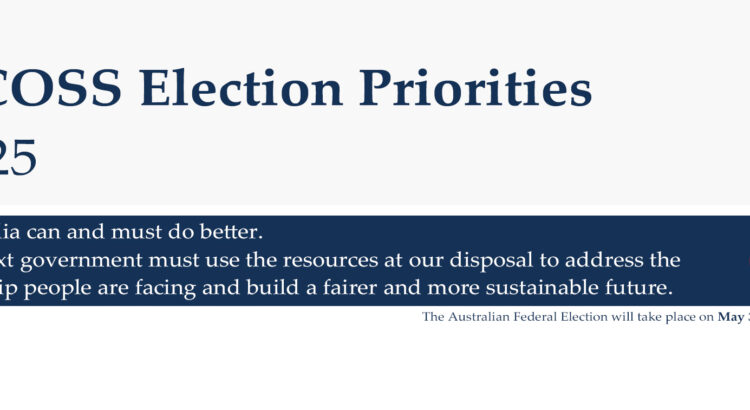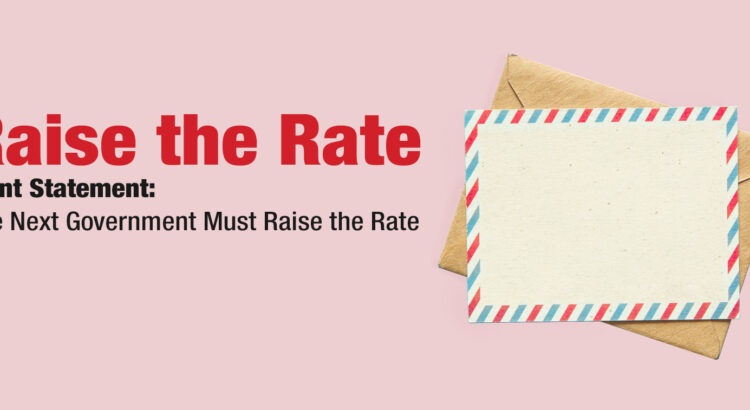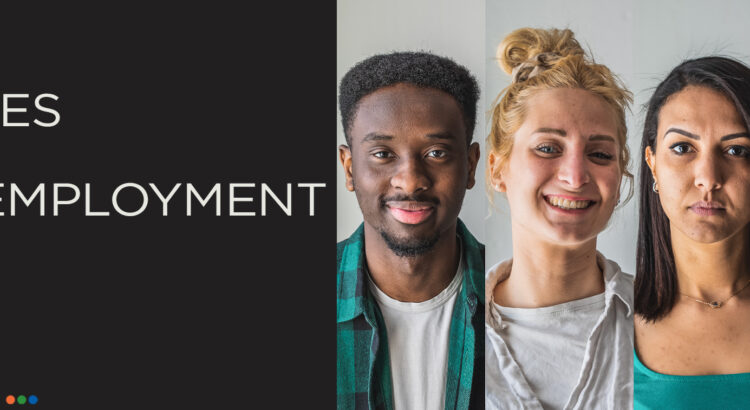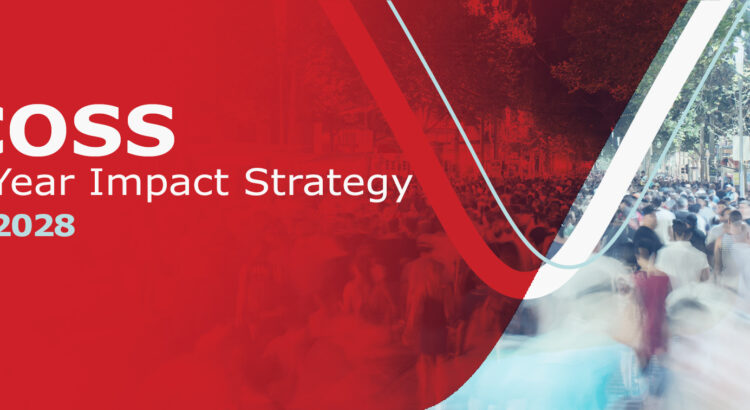Community attitudes towards poverty and inequality in Australia: latest research findings and how to talk about them
Community attitudes are an important part of building support for policy reform to reduce poverty and inequality. This webinar will present the results of a recent survey of the Australian public undertaken as part of the UNSW-ACOSS Poverty and Inequality Partnership. We will be joined by Mark Chenery, an expert in values-based messaging and communications and Co-Founder and Director of Common Cause Australia, and Jacqueline Phillips, Deputy CEO and Director of Policy and Advocacy at ACOSS.
Join us as we discuss not only what these results mean but also how we can talk about them to build further support for policy changes.
|
Presenters
|
|
Scientia Professor Carla Treloar Carla is Scientia Professor with the Centre for Social Research in Health and the Social Policy Research Centre. Her research interests are in the fields of hepatitis C and injecting drug use, working across different methods and disciplines. Mark is a communications expert and trainer who works with mission driven organisations and political parties to incorporate a values-based approach to messaging. Since establishing Common Cause Australia in 2014, he and his colleagues have trained over 5,000 campaigners, communicators and fundraisers from Australia and New Zealand in the science of values and framing. Jacqueline joined ACOSS as the Director of Policy and Advocacy in August 2013. From 2010-13, she was the National Director of Australians for Native Title and Reconciliation (ANTaR). Jacqueline has a long history of involvement with the COSSes and leads the ACOSS/UNSW Poverty and Inequality research and impact partnership. |
Electrification projects welcome: ARENA should prioritise disadvantaged households and communities
ACOSS welcomes the agreement between the Federal Labor Government and Senators David Pocock, Jacqui Lambie, Lidia Thorpe and David Van to task ARENA to invest in home electrification projects – and urges ARENA to prioritise disadvantage households.
As a result of the agreement, Minister for Climate Change and Energy Chris Bowen has tasked the Australian Renewable Energy Agency (ARENA) with considering funding for more community electrification demonstration projects across the country, off the back of a $5.4 million pilot that commenced in Wollongong in October last year.
The projects aim to help more people access solar, batteries, energy efficient appliances and shared community energy storage to permanently cut energy bills and speed up the energy transition.
“We applaud Senators Pocock, Lambie, Thorpe, Van and the Federal Government for listening to the voices of the community and working together to deliver this funding, which will help ensure more people, including low-income households, benefit from the energy transition,” said ACOSS CEO Dr Cassandra Goldie.
“This is good news for people living in hot boxes, struggling with heatwaves and high energy bills.
“Houses that are more thermally efficient, fully electric and with solar can save households up to $3,487 a year and reduce temperatures in the home.
“We urge ARENA to ensure projects have a strong focus on low-income housing, rental properties and First Nations Communities, who are missing out on the benefits of home energy upgrades.
“People experiencing financial disadvantage are more likely to live in poor energy performing homes, and as a result are more likely to get sick in the summer heat, face high energy bills and go without food, medicines and other essentials to manage their bills.
“We need a $50 billion investment over the next decade that prioritises people and communities experiencing disadvantage to help more people cut their energy bills, protect them from the ravages of heatwaves, and speed up the energy transition.
“Prioritising disadvantaged households would reduce energy hardship and inequality, reduce illness, and build social license for faster action to tackle the climate change crisis,” Dr Goldie said.
As we head into an election, ACOSS urges all parties and candidates to:
- Build on the critical federal investment into home energy upgrades for social housing to commit to upgrade ALL social housing, prioritising First Nations social housing.
- Provide support* to the States and Territories to implement mandatory energy performance standards for rental properties.
- Provide support* to help low-income homeowners access home energy upgrades.
An ACOSS-commissioned Deloitte Report found that a home energy upgrade program focused on low-income households could generate up to $17 billion in gross domestic product and create 12,700 full time jobs.
*Support includes subsidies, zero or low-interest loans, and culturally appropriate ‘one-stop-shop services’ that provide tailored information and support like access to energy audits, qualified and certified trades, financial supports.
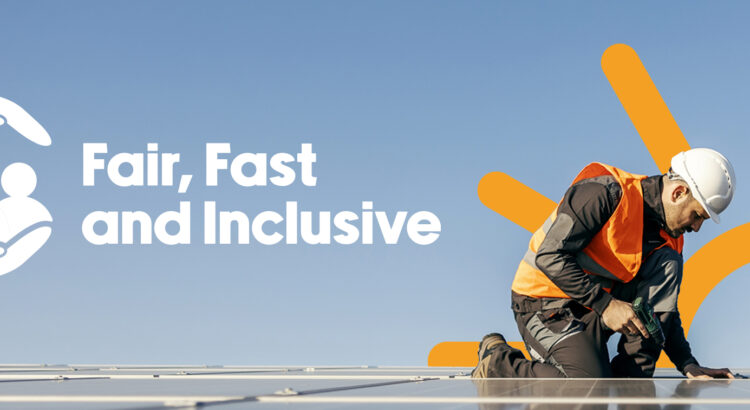
Fair, Fast and Inclusive Climate Action
Ensuring the transition to net zero emissions improves the lives of people facing disadvantage from the city to the outback.

ACOSS Community Hub
For all your latest news in the community services sector.
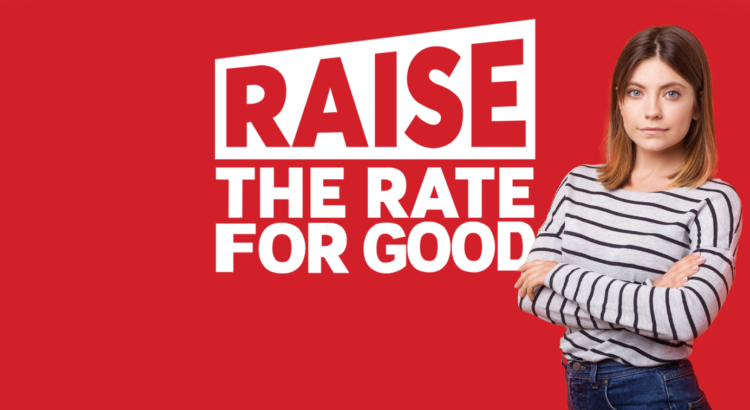
Join the Raise the Rate for Good Campaign
The campaign for a permanent, adequate rate of JobSeeker and other payments

